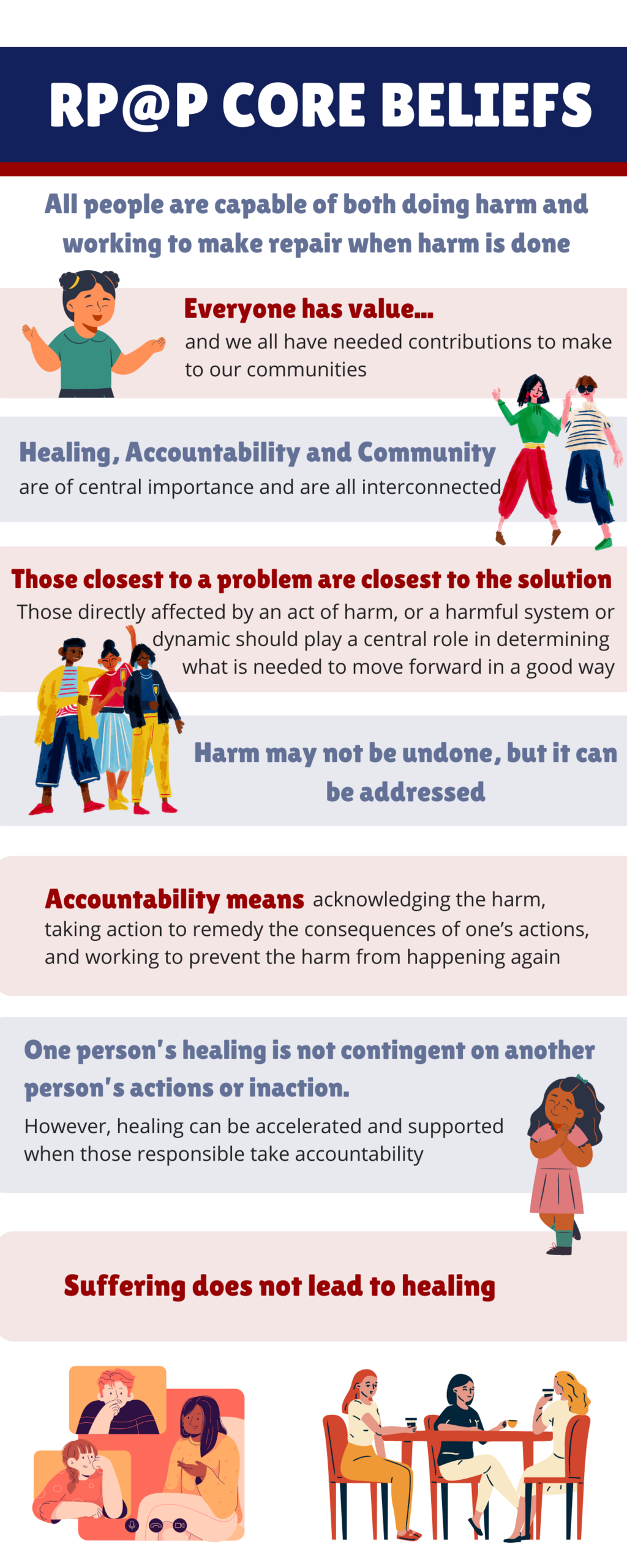RP@P Mission and Values
The term Restorative Practices (RP) describes an approach to healing, accountability, and community building rooted in a set of values and principles which emphasize the importance of involving those most affected in any given situation, the inherent worth of all individuals and our interconnectedness. Drawing from a diverse web of roots, including practices of various Indigenous peoples of North America, Australia, and New Zealand, Restorative Practices work to promote right relationships between people.
RP@P is dedicated to bringing these values and practices to all corners of the University. In situations of interpersonal harm, RP@P can provide safe, confidential, supportive resources to help the harmed party access healing and support, and for the responsible party to work toward accountability and repair. RP@P also implements proactive measures to build supportive communities and strengthen our collective capacity to handle harm when it inevitably occurs. RP@P aims to institutionalize, centralize, and support RP as a core aspect of the Penn community and culture.

- Community
- Healing
- Accountability
- Dignity
- Self-Determination
- Humility
- Vulnerability
- Growth Orientation
- Curiosity
- Imagination
- The safety needs of those who have experienced harm are paramount
- The parties have the right to come to consensus about what the needs are and what the process should look like
- The facilitator is a party to the process
- Whenever possible the needs of and impacts on the larger community should be considered and addressed
- When addressing harm, seek out the root to the greatest extent possible
- Prioritize the scheduling needs of those affected while ensuring that the process “moves at the speed of trust” (adrienne maree brown)
- Processes we design should always be supportive of full and authentic engagement, and not impediments to participation
- Trust participants to know what is important to them
- Always ask questions that support exploration and deepened reflection
- Consider the layered power dynamics at play in situations of harm and address them as directly as possible to invite all participants in in their fullness
- Recognize and honor the difference between harm and pain – a process or conversation may be painful and an essential part of a pathway toward healing

